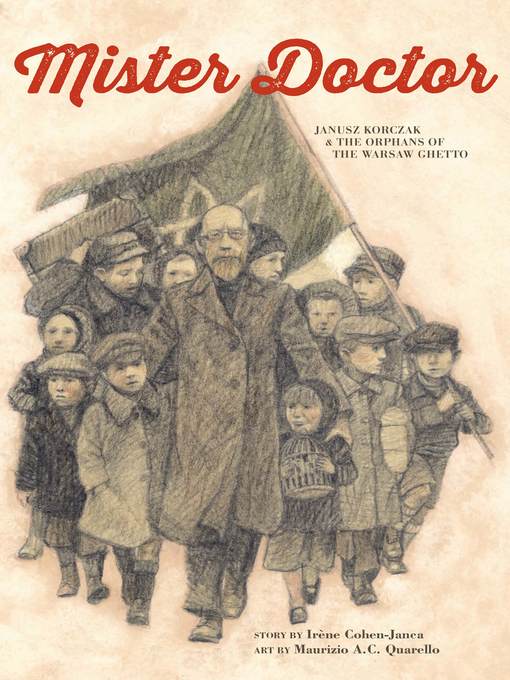
Mister Doctor
Janusz Korczak & the Orphans of the Warsaw Ghetto
کتاب های مرتبط
- اطلاعات
- نقد و بررسی
- دیدگاه کاربران
نقد و بررسی

Starred review from May 1, 2015
In World War II Poland, a distinguished and visionary Jewish doctor lives and dies by his humanity. In this fact-based story, Simon, a self-described "Jewish orphan, prisoner of the Warsaw Ghetto," narrates the tragic tale of Janusz Korczak, who had established a progressive orphanage in Warsaw. When the staff (except for the gentiles) and children were sent to the walled-in ghetto in 1940, Korczak, like so many others, tried to reason with the occupying Germans but was briefly imprisoned. In 1942, during a roundup, he nobly accompanied the children to their deaths in Treblinka. In this translation from the Italian, Cohen-Janca gives Simon a sure voice that is observant and grounded in reality as he describes Korczak's philosophy of empowering children while also depicting the despair and death in the ghetto: "The Germans don't want Jewish children to grow up." Quarello's softly textured graphite drawings on sepia-colored paper sustain the dark, foreboding air of the story with their stark depictions of buildings and barbed wire. A double gatefold of the children on their final walk to the transport trains is set against an all-white background and is achingly moving. Holocaust stories can be most powerful when seen through the eyes of an individual, and Simon, though a fictional child, is an unforgettable witness. Haunting and memorable. (afterword, further reading, resources) (Historical fiction. 11-15)
COPYRIGHT(2015) Kirkus Reviews, ALL RIGHTS RESERVED.

July 1, 2015
Grades 4-7 This fictionalized account of Janusz Korczak's final years introduces the famous Polish physician, author, and children's rights advocate, who in 1942 was sent to the Treblinka extermination camp along with almost 200 children and adults from the orphanage where he was director. Older orphan Simon narrates this story, describing the group's deteriorating circumstances as they move into the Warsaw Ghetto and eventually onto the death trains. Also spotlighted are Korczak's democratic views on child rearing and his storytelling abilities, which helped the children to bear hunger and deprivation during their ordeal. Quarello's shaded pencil drawings are well suited to the somber tone of the text, conveying the desperation of this situation, as well as the ways in which Mister Doctor's stories helped to reassure his charges. Ayer's translation (from the original Italian) reads smoothly, and an author's note provides further information about Korczak. While this will be a difficult read for many, Cohen-Janca's text never sensationalizes. A useful addition to Holocaust units or a catalyst for conversations about children's rights.(Reprinted with permission of Booklist, copyright 2015, American Library Association.)

























دیدگاه کاربران